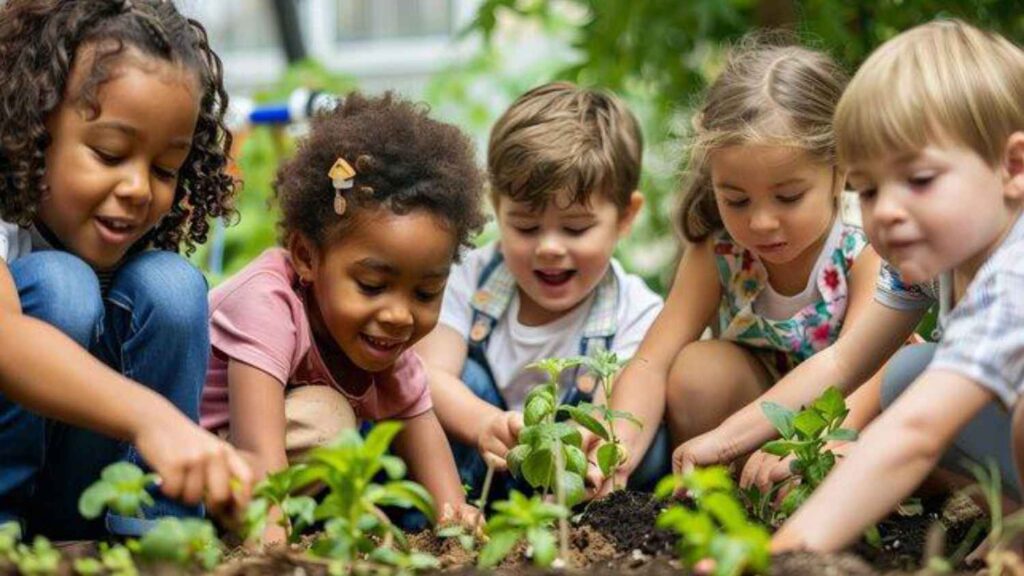Curriculum
Curriculum and Instruction:
Public Speaking (Character Education and Life Skills)
Our public speaking program will focus on developing confidence. Confidence is the core of our program because it provides the growth mindset attitude where children believe their possibilities are endless. CCA’s public speaking program would center learning around character building with an emphasis on decision-making, teamwork, and how to use social-emotional skills to communicate. We will teach children these essential skills through story-telling, role-play, and singing. Our life skills portion of the program will focus on citizenship, safety, responsibility and emergency readiness. Kids would have to think on the spot using what-would-you-do topics.
Health And Wellness:
We will also include a health program that would focus on nutrition, hygiene, and organic cooking. Children will have the opportunity to learn about the food groups, portions, nutrition content, healthy choices and cooking basics. Children will have the opportunity to pretend they have their own cooking show as well as use teamwork to complete cooking and tasks. They will conduct lemonade stands, smoothie stands and bake sales among each other and the community
Speech And Debate:
We will also foster communication with speech and debate. Students will be exposed to grade-level appropriate topics They will learn to communicate personal experience, research and justify how their research proves their points. A possible topic could include if students should be able to access their cell phones at school. They will practice their communication skills through debates, trials, news-reporter or school newspaper publishing, story-writing and story-telling. Students will also be able to read non-fiction texts and stories to practice reading and comprehension. Students will engage in community-based learning where they can be good samaritans and meet role models. Some topics include park clean-up, recycling projects, planting a school garden, and more.
Language Arts (Written communication):
Children will use the foundational reading skills they learn in Read-to-Achieve in our narrative, expository and persuasive author’s program by bringing writing to life through thinking out loud. We will write classroom stories and essays together gathering ideas, various vocabulary, transitions and vivid detail from one another.
Hands-On-Math and Financial Literacy

In addition to the English communication program, we will develop a Hands-on-Math Program and Financial literacy program, which facilitates communication through independent and critical thinking, problem-solving, and savings/spending skills. Many math textbooks only focus on the core basics. The practical application is often missing. Math teaches us how to analyze, think and problem-solve. We use it to calculate time, cost, distance, portion, estimate and measure. CCA will start a two-part Math program that uses hands-on techniques and real-world scenarios that are age appropriate for children to master their math skills, but be engaged at the same time. Our hands-on program would include fractions or measurements where kids make cakes or pizzas or use measurements to follow recipes. Our Financial Literacy program would adopt a textbook with age-appropriate topics such as earning money through chores and yard sales. They would also learn the benefits of saving and spending. There are also entrepreneur activities such as building your own farmer’s market. Each section gives children the opportunity to communicate and think because they have the time to create their own businesses and see them in action.
Physical Education:
CCA’s physical education program is an additional important component of student’s lives. Children must learn to develop healthy habits and maintain them throughout their lives without lacking confidence. We will include physical activities that promote balance, coordination, strength, agility, and focus, and endurance such as obstacle courses and relay races that promote team-work, encouragement and inclusion. We will complete sports units where we use positive reinforcement. Staff will assign teams and partners to promote positive communication and to help boost motivation. Children will be assessed on improvement and participation.
Media Literacy
Last but not least, we will establish a media literacy program that promotes digital citizenship. From kindergarten through second grade, students will learn basic computer skills. The focus will be to understand the basic features of a computer and navigate a keyboard. For grades 3-6, the focus will be media literacy: differentiating fact from opinion, analyzing reliable sources, web design, coding, and establishing the school paper and yearbook.
